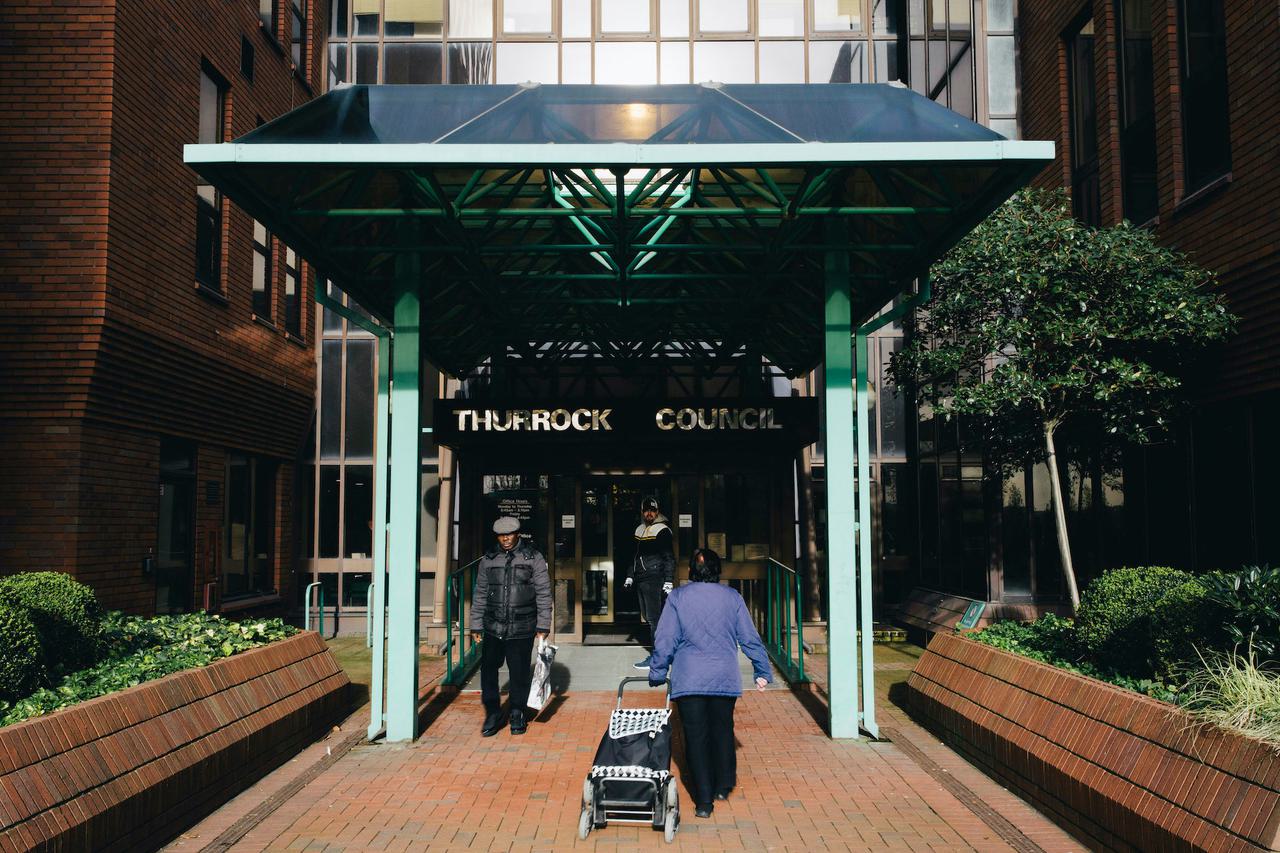
Council defends secrecy over investments that could cost taxpayers millions
A senior council officer has defended a controversial investment scheme during a tribunal hearing that will determine if details of deals worth hundreds of millions of pounds should be made public.
Sean Clark, corporate director of resources at Thurrock council, gave evidence on Tuesday at an information rights tribunal hearing – the latest stage of a three-year attempt by the Bureau to obtain details of the council’s investments under the Freedom of Information Act.
In 2019 the Bureau requested information about the council’s £1bn borrowing and investment strategy, which was overseen by Clark. Thurrock rejected those requests on the basis that the information is commercially sensitive and that disclosing it would damage its ability to conduct its affairs.
During the hearing Clark declined to answer questions on the findings of a Bureau investigation, published days earlier, which revealed the potential loss of up to £200m of taxpayers’ money as a result of investments the council made in a series of bonds linked to solar farms.
Leo Davidson, acting for the Bureau, put it to Clark that the council had refused the FoI requests because it didn’t want “embarrassing details” about the deals to come to light. Clark said neither he nor the council was trying to avoid scrutiny. He added: “What I am worried about is any detriment that could come from releasing this information.”
Davidson told the tribunal that the Public Accounts Committee, National Audit Office and the Chartered Institute of Public Finance and Accountancy had all raised concerns about the sort of investments Thurrock had undertaken.
These concerns include a lack of transparency, decision-making by very small groups of people, borrowing and investments that are disproportionate to a council’s resources and an over-reliance on commercial sensitivity as an excuse for limiting the information disclosed to the public. Davidson pointed out that, of the external investments made by hundreds of local authorities in the UK, one in every four pounds related to Thurrock.
Clark admitted that the council was at the “top end” when it came to how much it had borrowed and invested but said that the policy had brought in significant extra income to the council and had been taken with the full support of councillors. He added that additional detail had been given to the leaders of the three main political parties on the council, although the meetings were not minuted and no evidence was provided as to what they were told.
Clark said there were “clear avenues” for councillors to come forward if they had questions. They also had the power to request parts of meetings be held in private so confidential details could be discussed, but none had done so, he said.
“They never pushed me on any of those commercial arrangements when they could have done,” he said.
Davidson told the court: “The evidence of Sean Clark is that no one ever asked any questions. They nodded it through. They did exactly what the Public Accounts Committee and others are concerned about, and they did it with £1bn.”
The tribunal heard the council has since stopped its investment policy. Clark said this was partly because it no longer had the support of some members of the council.
Philip Coppel QC, acting for the council, said releasing the information would still be damaging because it would jeopardise the council’s ability to “extricate [from] or otherwise refinance” the investments.
He said: “Much has been made about the scale of the loans and the investments and about the council’s fiduciary obligation to ratepayers. We don’t take issue with any of that. It is because of the scale of the loans and the investments and about the council’s fiduciary obligation that caution in disclosure is prudent.
“Careless talk costs investments. It is the ratepayers who suffer.”
Davidson said: “We’ve heard that the strategy is so fragile that if anyone knew the specifics of what was going on it would cause … a deleterious effect on [the council’s] ability to refinance and to provide public services.
“We say what clearer evidence can there be that something has gone wrong? If, as a local authority, your financial scheme depends on secrecy and cannot provide public scrutiny, it’s a pretty good clue that you’ve adopted the wrong strategy.”
Much of the hearing focused on Thurrock’s investments in bonds issued by companies ultimately owned by Liam Kavanagh, a businessman.
Clark did not respond during the part of the proceedings open to the public to questions arising from the Bureau’s most recent investigation, including on the whereabouts of £138m put into solar farm deals after the sites were purchased, and on meetings between Kavanagh and Clark at a London hotel. There was subsequently a closed part of the hearing where only Clark and his legal representatives presented to the panel.
However, when asked why his witness statement in June had said the bond issuer had always paid the council’s interest coupon on time and in full, when the latest sum of £12.5m has been outstanding since February 2022, Clark said he had been referring to the situation as of July 2020. He added that no public funds have been lost.
The tribunal was due to hear evidence in support of the council from Ian Walsh, until recently the sole director of Kavanagh’s company Toucan Energy Holdings 1. However, the evidence was withdrawn on the first day of the hearing because Walsh had resigned that position on 1 July, days after being contacted by the Bureau about its investigation.
The hearing concluded on Wednesday. Judgment was reserved.
Header image: Thurrock council headquarters in Essex. Credit: Alex Sturrock for The Bureau
Reporter: Oliver Kemp
Bureau Local editor: Emily Wilson
Editor: Meirion Jones
Production editors: Frankie Goodway and Emily Goddard
Our reporting on local power is part of our Bureau Local project, which has many funders. None of our funders have any influence over our editorial decisions or output.
-
Area:
-
Subject:




